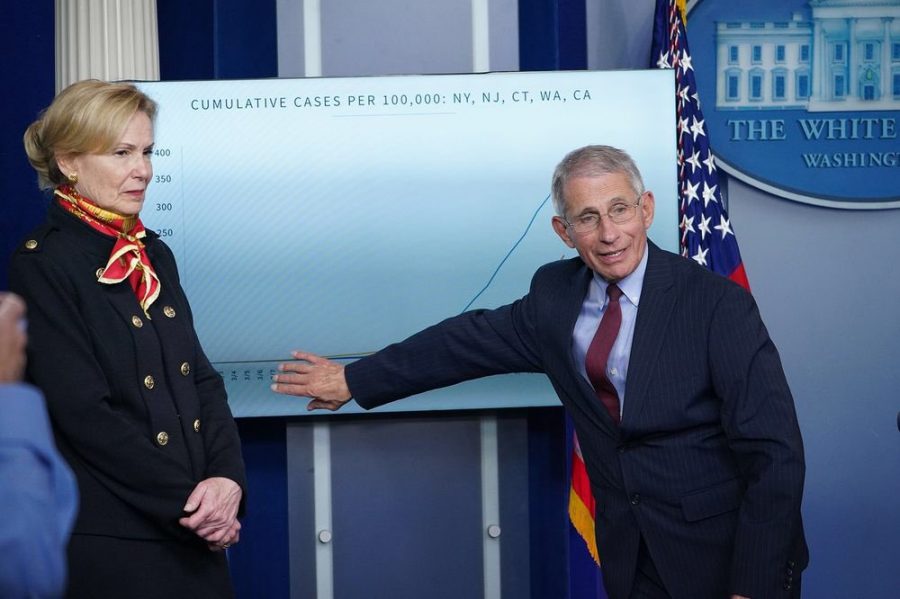Should We Never Shake Hands Again?
On Tuesday, April 7, the Wall Street Journal’s podcast spoke with Dr. Anthony Fauci, director of the National Institute of Allergy and Infectious Diseases, on what post-coronavirus America will look like. Twice in the conversation he addressed sickness prevention and stated, “I don’t think we should ever shake hands ever again.” My jaw dropped, and then I laughed, but then I wondered: Is Fauci right? Will such an ingrained aspect of western culture be effaced by COVID-19?
A part of me says no. Our society flirts with trends and scares; in January people thought World War III was upon us. Now, no one posts about it, as if everyone has forgotten what caused that fear. While COVID-19 is no trend and is a far more present threat than January’s war worries, many should be able to move on from what has become our new normal. With antibody tests, a vaccine in its first trial phase and New York-state numbers seemingly slowing, the light at the end of the pandemic’s tunnel is there, even if it is an indeterminable distance away. Perhaps it may take a few years to get back to a good handshake, but it’s certainly possible.
Another part of me says that there will be hesitation for someone to initiate a handshake. Before my office downtown closed, I took note of how long my coworkers would wash their hands in the bathroom; I would always make sure to wash mine for longer. Never did I want the judgment or shame of being classified as dirty or germ-ridden around the office.
Then on the day Fordham University announced that classes would be canceled due to COVID-19, I had an interview in Manhattan. I instinctively put my hand out to my interviewer, not realizing my what-was-once-polite action was now risky, and he laughed, saying, “I would shake your hand, but I think we should hold off on that for now.” Well, how long will we hold off on that? If people stop shaking hands long term, it might not be because we “should,” as Fauci says. It may be because of fear and not knowing if it’s OK yet. Just as we fear rejection in dating, we will fear rejection from peers if we offer them a handshake.
I’d like to say it’s easy: Get it over with, people, and shake my hand once July hits. Yet I know I’m selfish and impatient and possibly in terrible denial for it. I also feel that there must be people who think like me, who scoff at Fauci’s ridiculous request to end all handshaking. Humans crave touch and physical connection, especially now that we can’t have it. There’s a reason why career counselors always tell you to have a good handshake.
Fauci’s claims of avoiding any nonessential touching are sensible — they probably would reduce the common flu as he says, but at what cost do they come with? This pandemic has “matter over mind” becoming a global theme. What kind of stressors would we place on the population if we told them to be so mindful that good handwashing isn’t enough and that they must never touch one another to avoid future epidemics? Perhaps it would be better not to leave the house.
Thus, the point of humans never shaking hands again feels rather pointless. Should we stop holding onto subway poles? Playing close-contact sports? Using a library computer touched by God knows whom? Of course, the point is to limit contact as much as possible, but that isn’t how human society, as we know it, works. We will return to rubbing elbows on our commutes, and if we keep good hygiene in mind instead of fear fueled by sensational headlines, we can stand to shake a hand or two.
Maggie Rothfus, FCRH ’20, is an English major and psychology minor from Pittsburgh, Pa.
Copy Chief for Volume 101.










































































































































































































